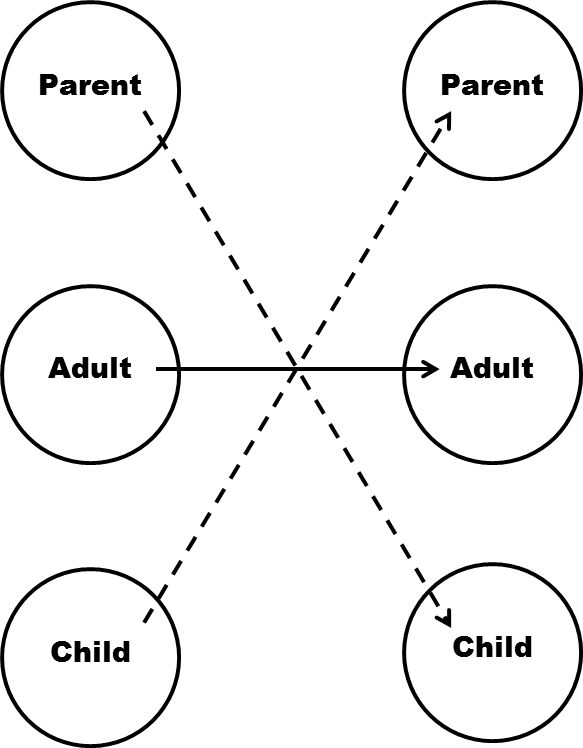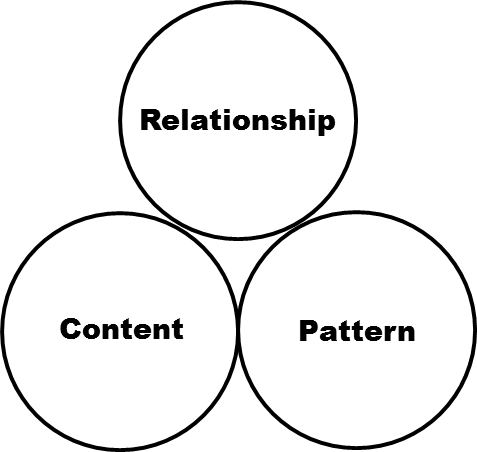|
|
by Rick Baker
On Aug 1, 2013
Our skin is about a millimetre thick.
That's thick enough to protect our soft and vulnerable internal things from most damage.
Yet, far too often, it is not thick enough to protect our soft and vulnerable egos. Somehow, the opinions of others can pierce our thin skin, offend our egos, and distract, dampen, and damage our spirits.
Why does this happen?
How does this happen?
Has this always been the case?
Or -
Did our ancestors have thicker skin?
Did our ancestors view criticism as a noble form of communication? Was there a time when many people, perhaps even whole tribes or communities, had skin that thick?
If so, what happened?
How did people's skin become thinner?
Is it the larger the community the thinner the skin?
Is it the more-advanced the civilization the thinner the skin?
Is it the more the possessions the less the skin?
The more the stuff the less the skin?
And -
Why don't more people take the time to do some self-analysis, obtain some help, and thicken up their skin?
Do people see thin skin as an inevitable part of their destiny...pre-determined, evolution-engineered?
Do they blame their parents, their grandparents, their great-grandparents and so on?
Or -
Do they wonder - Did our ancestors have thicker skin?
by Rick Baker
On Jul 26, 2013
When it comes to repairing damaged relationships, three simple tools provide a great deal of value.
Here's an introduction to the 3 tools...
Tool #1 - from Eric Berne's work in the 1950's - 'Transactional Analysis'

People communicate 3 ways: Parent, Adult, Child. When you communicate with people, especially when situations are challenging, choose the Adult approach. Otherwise, you run the risk of Parent-Child communications or worse still Child-Child communications, both of which are not productive in business.
Tool #2 - from Patterson, MacMillan, Grenny & Switzler's recent work - 'Crucial Conversations'

'Crucial Conversations' happen when people disagree, emotions are charged, and the stakes are high. When approaching such conversations it is important to decide, up-front, the specific problem you wish to address. Is it a problem of dysfunctional Content? Is the problem a repeated Pattern of poor behaviour? Is the problem relationship damaging behaviour? Decide which problem form is to be addressed and limit your conversation to that single problem.
Tool #3 - from Mark Weber - Interests, Rights, & Power [see Thought Post]

When we have disputes with people we have the ability to focus on Interests [the things we want], Rights [the things we are entitled to], or Power [the Rights we can enforce]. When resolving a dispute, we do better when we focus on Interests.
Of course, much more can be said about all 3 of these concepts/tools. However, there is much to be gained by keeping it simple by considering the 3 pictures and the 3 pieces of advice:
- Think and talk like an Adult, not like a Parent or a Child.
- Test the nature of the dispute: is it a behaviour Content problem, a repeated Pattern of behaviour problem, or a Relationship problem. Pick only one of these types and stick to discussing the problem in that way.
- Recognize that people have Interests and thoughts about Rights and Power. To resolve disputes, focus on Interests and avoid arguments that escalate into Rights and Power territory.
by Rick Baker
On Mar 28, 2013
When Emotional work gets too heavy, we cry out for help.
Using the Transactional Analysis “Parent-Adult-Child Model”…and some facts-of-life thinking:
- when we are first born, we are helpless yet we have a built-in talent for crying out for help,
- we use that talent from the start…we cry out for help,
- we learn – crying out for help works…it’s a successful way to get attention,
- we learn more – crying out for help actually brings the help we desire…food, comfort, other essentials,
- we develop a habit…crying out for help,
- when we are toddlers we notice something very surprising…we notice the word “No” and all the body language that comes with the word “No”,
- we do not like that word “No”…it goes against our natural desires: food, comfort, curiosity, etc.,
- we resist the word “No”,
- we learn resistance can be futile, and
- we learn – all of us, to carrying degrees learn – how to adapt new behaviours that help us get around the word “No”.
A small sampling of the behaviours we use to get around the word “No”:
- we scream and scream until finally those No-sayers realize their best choice is giving in…when we grow up we may learn ‘Transactional Analysis’ people call that behaving like a child…and others call it crying out for help
- we learn what is known as ‘Adult Behaviour’…i.e., socially-recommended stuff…this includes concepts like compromise, patience, and empathy, all of which tend to delay our near-term gratification.
Most people cry out for help [at least, every once in a while].
Some people cry out for help frequently.
Some people cry out for help at work.
Some people, on their own, have little ability to control their crying out for help.
They need help.
Using the Child from transactional analysis…
When a Child meets another Child, the response to a cry out for help is a cry for help.
We see this in our workplaces…cries for help are exchanged and cries for help escalate.
These cry-for-help versus cry-for-help interactions:
- eat up energy…they are heavy Emotion work for all involved &
- provide little, if any, value to anyone…either in the immediate-term or the long-term.
So, cry-for-help versus cry-for-help interactions are Problems.
There are many strategies for getting around these cry-for-help versus cry-for-help problems.
One of the best strategies is – Plan & Apply Rules.
Rules, when set, communicated and applied properly, place limits on Emotional work. With a little knowledge and practice, Rules can significantly reduce Emotional work. When this happens, self-confidence grows. In this way, Rules are conduits for self-confidence growth.
Using the transactional analysis words, Rules help the Child to develop into an Adult.
Rules send signals that express the boundaries around rewards...be they good or be they bad. That's how Rules encourage us to perform Good Habits and help us explore New Things in order to change our Bad Habits into Good Habits.
Rules help us know when to march and when to fight. That was a lesson I learned [over time] from one of my early bosses. He said, on a number of occasions, “There is a time to march and a time to fight.” He recognized I was far too busy fighting to be marching…on a clear path let alone in time with a drummer. He knew I would fight myself out of a job.
So, he regularly reminded me there are times when marching is the best thing to do. This helped me keep my job and gain an appreciation of rules. [And, it planted the seeds that allowed me to adjust my approach, removing Bad Habits and replacing them with Good Habits…I view it as a life-long process….one worth working at continuously.]
At Spirited Leaders, marching rules have evolved into “Master Rules”. Leaders have a right to set “Master Rules”; however, we recognize some folks may really object to using those two words.
I never objected to the fact we need rules and order.
That isn’t to say I did not break the rules regularly and dispute the intelligence of certain rules. [I did that regularly, actually more often than my co-workers.] While I have resisted certain rules and cried for help in reaction to some rules and some people who delivered rules poorly, I have been comfortable with the fact rules exist and the fact rules serve a purpose.
Why all these personal comments about rules?
Because:
- Rules are often seen as "No"...just like the "No" we heard ,when we were infants
- "No" messages can trigger emotions and emotions consume brain energy...and that's work, Emotional work,
- Emotional work is personal and each of us has to do some self-examination if we want to feel better and succeed more when we deal with other people, and
- if we see cry-for-help problems, and we will see them at our workplace, we need plan how to communicate more openly about them...and then, when the dust isn't swirling, we need to do that communication.
People are different; people are amazingly unique.
Yet - most people understand the need for rules. Anarchists do not. Fortunately, anarchists are few in number. We must not confuse normal human reactions with acts of anarchy. Most people resist rules - that's normal - a part of human nature. Rules remove, reduce, delay, or change rewards. That's why we resist rules. We are more prone to resist the rules that connect with our personal desires. We have an easier time accepting rules that do not conflict with our near-term desires.
Most people know we need rules.
Most people know, at the very least, workplace rules create order by defining boundaries. When they are at work, people gain comfort when they understand the boundaries. They gain most comfort when they buy into the rules. That may not happen instantaneously...it may be a process over time.
When people understand workplace boundaries they understand why, from time to time, they will hear and see “No”.
When people understand they will hear and see “No”, they will have choices around how they are going to react to “No”. When people know they have choices, they have time to plan those choices.
People can plan how they want to react to hearing “No” at work:
- they can respond with a cry for help [like the Child does], or
- they can respond with making demands [like a Parent does], or
- they can respond with Good Workplace Habits [like an Adult does], and
- they can develop a set of responses, customized Good Workplace Habits [like a Leader must do and a Leader must help others do].
Straightforward plans & guidance, mentoring, and coaching will help people build a set of responses in the Adult Zone.
by Rick Baker
On Mar 17, 2013

Isn't it tough to argue with a success rate like that!
And, that's just the introduction to the Knapp Fasteners' family-business success story.
Jenny Knapp presented her family business story at our Centre For Family Business [CFFB] February breakfast event. Knapp Fasteners is a successful local company and a member of CFFB. CFFB is a local association, created by members to support, educate, & energize people who work at family businesses.
Jenny stepped up to the plate last month, volunteering to present her family-business story to CFFB members and corporate partners.
Jenny's story 'hit it out of the park': a perfect mix of humour, family and interpersonal sincerity, and business savvy.
Here a sample of the highlights Jenny shared as she told the Knapp Fasteners' story:
- in business for 26 years. [Well done!]
- Knapp Fasteners is a distributor; they package and resell fasteners. [here's a link to Knapp Fasteners website]
- Jenny studied business at our fine, local, Conestoga College.
- Just after they were married, Jenny and her husband Jim founded Knapp Fasteners.
- The business started small - in 1987, with a $15,000 loan in hand, they rented 1000 square feet of space on Colby Drive, Waterloo.
- Knapp Fasteners, like many start-ups, had to figure out how to manage the cash-flow squeeze...suppliers wanted up-front payment while clients wanted 30 days to pay...the Knapps solved that problem [This is an inspiring fact, of benefit to other CFFB members who struggle with cash-flow squeeze.]
- Parents helped out...it was family effort from the start.
- Knapp Fasteners had a great first year, with sales results exceeding forecast by a factor of two.
- But...quick, early growth brought some serious problems.
- Knapp Fasteners took a big hit in their first year of operation when one of their clients went bankrupt...again, Knapp Fasteners' ability to manage this problem provided another lesson of value to the audience. The solution involved Jim's brother Dave, who loaned money to cover the problem. What a vote of confidence...and a terrific example of how families inject value into our local business sector. Many years later, in 2010, Dave joined the company...he now works with Jenny and Jim.
- Jenny and Jim worked 70 hours per week for the first few years...that confirms the commitment required to establish a family business and make sure it is on firm ground.
- Knapp Fasteners has grown steadily and moved twice: to Bathurst Drive in Waterloo in 1989 and to the present location at 520 Boxwood Drive, Cambridge in 2010.
 Jenny & Jim Knapp
Knapp Fasteners' culture promotes strong work ethic. Several people have joined and grown with the company, including family members and employees` children, who have enjoyed summer jobs at Knapp Fasteners. 'Knapp people' have friendly team competitions...clients and suppliers help pick the names for the teams...and the winning team receives a trophy at year-end. That's just one of the reasons why Knapp Fasteners is a great place to work.
Here are a few pictures of Knapp Fasteners' current home - a fine example of what 2 family businesses can build when they put their minds to it (Knapp's new home was built by Schiedel Construction, another successful, local family business).
Our community recognizes the contribution the Knapps are making: the Knapps and their company have been nominated for several awards.
In 2012, Jenny and Jim Knapp were honoured by the college they attended in the mid-1980s. They received the Conestoga College Alumni of Distinction in Business award.
Congratulations, Jenny & Jim...on a family business well run and a family-business story well told!
Thank you for sharing your story at CFFB.
by Rick Baker
On Mar 11, 2013
A related article… Do Family Businesses Have Better Values?
The @GKWCC #P2P series of thought tweets contains ideas, quotes, & suggestions provided by local business leaders at "CEO Peer-to-Peer" group meetings, sponsored by the Greater Kitchener Waterloo Chamber of Commerce.
The goals of the thought tweets: to help local business leaders and to promote the sharing of business thoughts.
The thoughts expressed are not opinions of the Greater Kitchener Waterloo Chamber of Commerce...they are opinions of local business leaders who are Chamber members and participate in the Chamber's CEO P2P program.
by Rick Baker
On Feb 18, 2013

Larry Smith is an economist at UW.
When he visited CFFB in January, Larry softened that introduction by letting us know he has experience with family business...he grew up in a small town...he went through the child labour experience. That was the first hint of the presentation uniqueness about to follow.
Larry talked about the serious disruption caused by economic recessions and the importance of being able to do economic forecasts. During the recession of 1980-1981 Canadian economists could forecast. Similarly, about a decade later the Governor of the Bank of Canada visited Kitchener and confirmed he would be raising interest rates to fight inflation. That allowed Canadian economists to forecast the danger that became the economic downturn of the early 1990's.
In the last 5 years we have experienced another recession. This time inflation is gone, we are seeing a long-term, systematic decline in exports to the U.S. Larry explained, this is not a retreat. It is disengagement so, in the future, the U.S. will not pull us down with them.
About the U.S. economy:
- During the 1990's the growth in the U.S. economy was mostly 'Internet hype"...so the U.S. took a major hit in 2000
- Without mentioning names, a U.S. President ruined the economy
- one of the lowest taxes in the world/large military budget/less money for other sectors/major universities lowering enrolment & reducing class time
- more-recently - the U.S. has not had a budget for almost 4 years
- "The largest economy in the world has no fiscal plan."
"America, which could stimulate the economy around the world, is missing in action."
"The U.S. has to elect a President who is decisive and can knock heads."
And - the U.S. is still Canada's largest market.
We are separating from the U.S.
What about the rest of the world?:
- despite all its problems when compared to the U.S. Europe is well-governed
- Japan has had 8 Prime Ministers in the last 3 years
- China has 16,000,000 census takers/the entire Chinese government is 7 people
- India do not educate rural people/wealth is for the elite
- Canada may be seen as an oasis of dopiness
About Canada's economy:
- we face rising competitive pressures
- millions of Latin American people are not our competitors [ex, Brazil & Mexico]
- the Philippines, Indonesia, China, and India are all expanding as competitors
- forecast: slow growth at best for the foreseeable future
- everyone is facing competitive pressure
Larry summed up the Canadian situation, "We are in the most challenging economic environment we have ever encountered since I became a practising economist."
"This year it is hard. Next year it will be harder."
A message for 20-year-olds: "Your life will be more difficult that your parents' and your grandparents'." The standards for getting a job keep rising and co-op programs around the world are providing work-experience for young people. Employers want to hear good answers to questions like, "What ideas do you have for me, your employer?"
"Young people need to know they must offer ideas."
Is there a way out of this dilemma?
- there is no magic way
- we must not shave profit margins
- we must not reduce quality
"In your hearts, you know what you need to do..." "Let us motivate ourselves. Let us steel ourselves to do things that we may not find comfortable and attractive."
Canadians must INVENT: "I own a Canadian family business. I am an inventor." "Is that how you introduce yourself?"
Invent - and have the ability to move quickly.
"Your work is going to be exciting, scary...the antithesis of boring."
"You have the characteristic the market will reward the best."
And in closing, Larry said -
"With resolve to do what you need to do, I wish success to all of you in the exciting times in which we live."
An amazing presentation Larry...captivating, educating, & energizing.
Thank you!
|
|